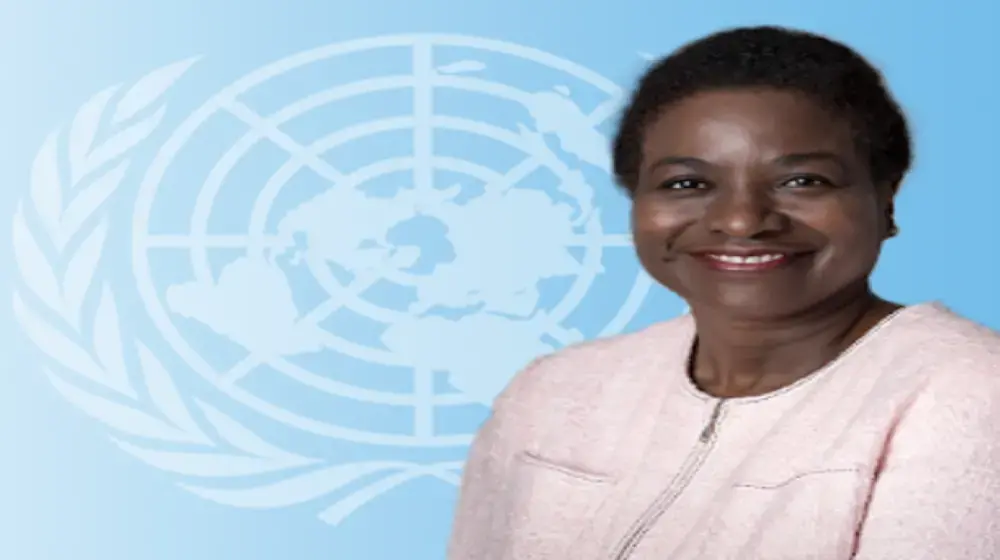The United Nations Population Fund has donated midwifery skills lab equipment to Principal Tutors to twenty Midwifery Training Institutions in Uganda.
With support from the Swedish government, the equipment worth USD 151,311 (UGX 552,285,150) is to improve the quality of midwifery education, increase the numbers of competent midwives and thus increase skilled attendance in Uganda.
“This is a moment of joy,” said Hon. Chrysostom Muyingo, Minister of State for Higher Education, who received the equipment on behalf of the government of Uganda and handed them over to the principals of the respective Midwifery Institutions.
The occasion took place at the Health Tutors’ College, Mulago on August 9. The Minister thanked the Swedish government for supporting midwifery programming in Uganda and appealed to the midwives to put the equipment to proper use and purpose for the benefit of mothers and their babies.
He said maternal health for all mothers and their babies can only be achieved with good quality care and effective skilling of midwives so as to achieve the Sustainable Development Goal 5, reiterating government’s commitment to continue supporting midwifery training in Uganda.
Speaking on behalf of the Embassy of Sweden in Uganda, the National Program Officer, Sexual and Reproductive Health and Rights Ms. Annelie Areskär said Sweden is pleased to have an important long-term support to midwives in Uganda through UNFPA:
“We are proud to have been able to support you as a response to improving the quality of midwifery education through equipping the Skills Lab in the 20 Midwifery Training Institutions,” she said, adding that midwifery is a key element of sexual, reproductive, maternal and newborn health care.
“Investment in midwives is interpreted by Sweden as not only an investment to save lives of mothers and newborn children. It goes beyond and lay the ground for individuals and families to plan their lives, enabling them to make informed choices. Midwives support and promote healthy families, and empower women and couples to choose whether, when and how often to have children,” she said.
In his remarks, UNFPA Representative Mr. Alain Sibenaler recognized the long-term support that Sweden has provided for the midwifery programme in Uganda, adding that without skilled birth attendance, giving life can neither be safe, nor referred on time, nor dealt with in an appropriate way.
“Today, as we hand over this equipment to the Principal Tutors, I feel inspired and well assured that it is the right investment. Ensuring that student midwives are trained in well-equipped skills labs is one of the ways to acquire competences and be able to provide quality care to mothers and their babies,” Mr. Sibenaler said.
The equipment consisted of among others female pelvis, Neonatal resuscitation apparatus, Maama Natalie, and Placenta models.
UNFPA is, and will always be committed to skills development through quality midwifery training. We are committed to ensuring zero maternal death, zero unmet need for family planning and zero tolerance to violence and harmful practices against women and girls, the Representative concluded.
Since 2010, UNFPA, with support from The Swedish International Development Agency (SIDA), 60 Midwifery Tutors have been trained to reduce on the Tutor-Student ratio. The Midwifery curriculum has also been reviewed to make it competency-based and has incorporated the International Confederation of Midwives (ICM) standards. UNFPA has also supported training of over 500 midwives for the underserved areas under a bonding scheme.
-Written by Evelyn Matsamura Kiapi



